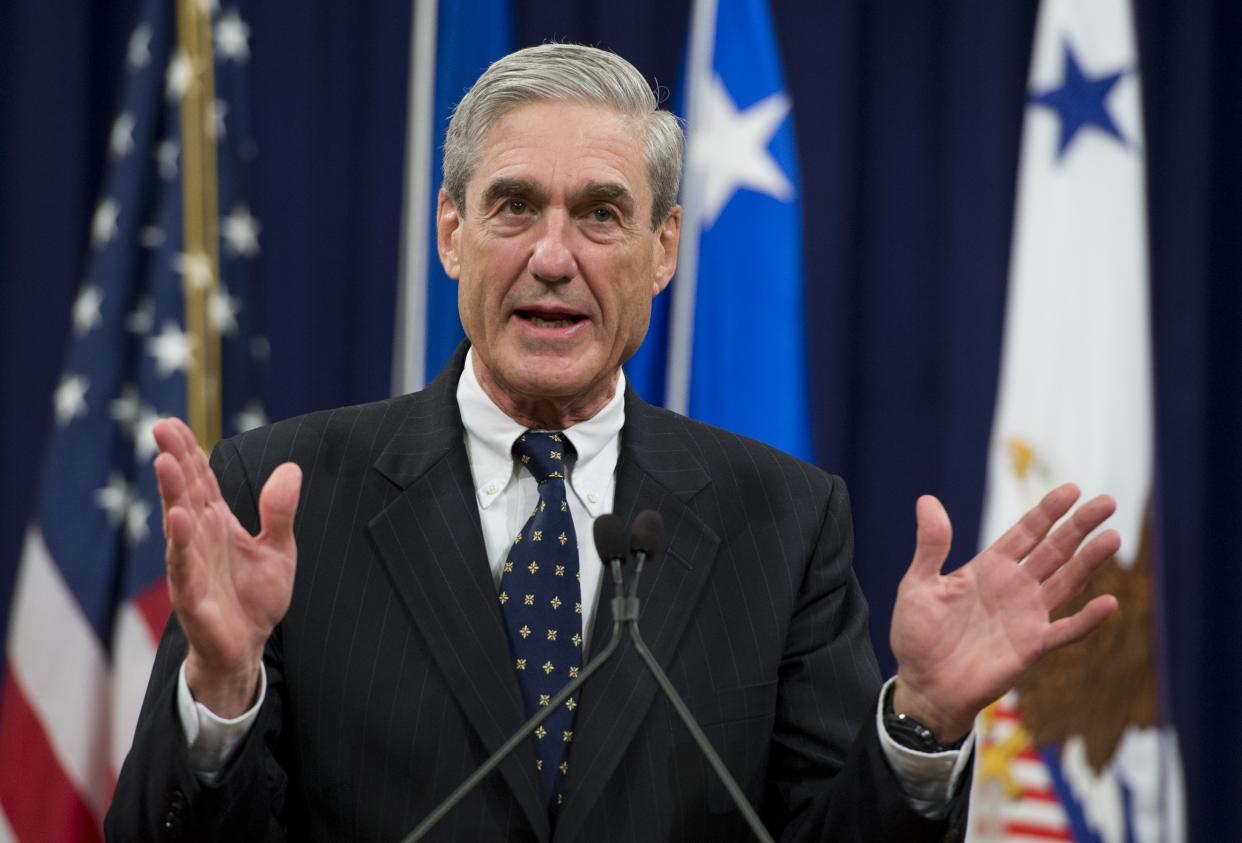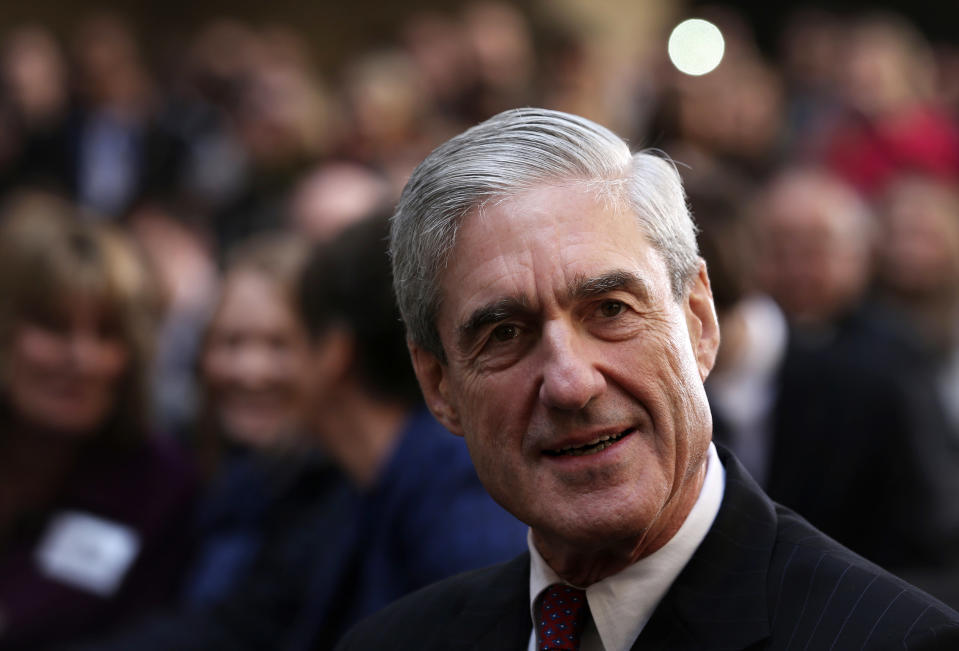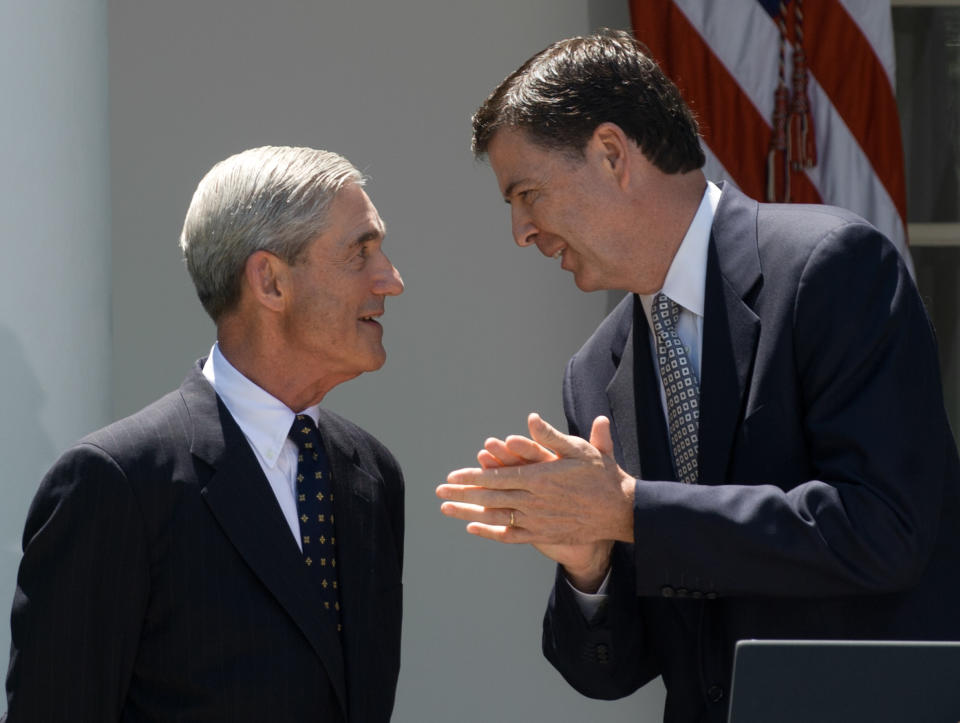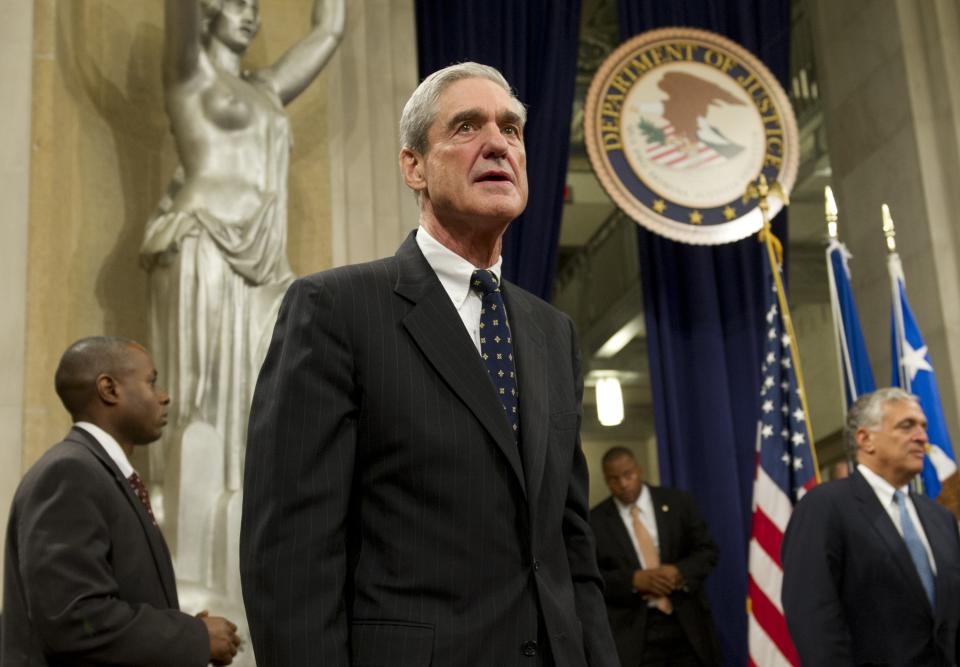Meet Robert Mueller, Justice Dept. Special Counsel

Robert S. Mueller III is the latest political figure to step into the investigation of President Donald Trump's campaign's ties to Russian officials. The former F.B.I. director, known as "Bob" to friends, was appointed special counsel by the Justice Department on Wednesday, a decision that comes in the wake of former F.B.I. Director James Comey’s firing by President Trump.
What started as an investigation into retired Lt. Gen. Michael T. Flynn’s communications with Sergey Kislyak, the Russian ambassador to the United States, has escalated in recent weeks. Kislyak and Russian Foreign Minister Sergei Lavrov were both present at a meeting with President Trump, for example, during which the president reportedly shared highly classified intelligence about Islamic State counter-terrorism, (information which had been provided by a U.S. ally, but was shared without its approval).
Separately, on Wednesday, the Washington Post obtained a recording of a group of Republicans, including House Majority Leader Kevin McCarthy and House Speaker Paul Ryan, supposedly joking about President Trump's ties with Russia, with McCarthy saying, "There’s two people I think Putin pays: [fellow Californian Republican representative Dana] Rohrabacher and Trump. Swear to God."
It is into this political maelstrom that Mueller enters. With that, here's what you need to know about him:
1. He was appointed F.B.I. director during George W. Bush's administration - a week before 9/11.

Mueller joined the F.B.I. from the Department of Justice, where he'd worked as a prosecutor. He remained as the head of the F.B.I. for twelve years, developing a reputation as a no-nonsense boss who wasn't afraid to shake things around. He'd inherited a bureau that had just undergone several scandals, routinely lost guns and laptops, and had no sense of self-monitoring. During his tenure, he changed the public image of the F.B.I. drastically - according to USA Today, "former Attorney General John Ashcroft said back in 2013 that Mueller projected an air of 'total integrity' that began to restore the FBI’s standing at a very critical time. Former Homeland Security Secretary Michael Chertoff predicted Mueller would be known as 'the most transformative director in the history of the FBI since Hoover.'"
However, as he was in charge of the bureau during the 9/11 attacks, he's been the recipient of criticism over the years as to how the F.B.I. handled pre-9/11 intelligence. Former Democratic Senator Bob Graham had this to say about Mueller's appointment on Wednesday:
"I did not have a good relationship with Mueller during the 9/11 investigation. I have some concerns that he will in fact be fully independent, based on what I observed 15 years ago."
2. He was James Comey's colleague, and later mentor.
Both Mueller and Comey worked under former President George W. Bush, though at that time Mueller was the director of the F.B.I. while Comey was the deputy attorney general at the Justice Department. Multiple pieces examining the two men's long friendship name Mueller as Comey's mentor.
His and Comey's close relationship was bolstered in particular when both men went up against the Bush administration in 2004. Comey, who was the deputy attorney general and acting Attorney General at the time, refused to authorize a National Security Agency spying program which allowed for warrantless domestic spying. Both he and Mueller then moved to prevent the White House from circumventing Comey's decision; they ended up at the hospital bedside of then-Attorney General John Ashcroft, who was suffering from pancreatitis, after finding out that White House chief of staff Andrew Card and White House counsel Alberto Gonzales were going to ask Ashcroft to OK the spying program.
Despite Mueller, Comey, Ashcroft, and a slew of other staffers threatening to resign if the NSA program went through, the Bush administration did continue the illegal wiretaps for several weeks. (Years later, Comey delivered testimony that directly implicated Gonzales and Card with potentially illegally interfering with the whole NSA situation.)

3. He's challenged executive authority before.
A 2001 Washington Post profile paints a picture of a man who regularly challenged the status quote:
"One of his first projects [as the head of the F.B.I.'s criminal division] was to shake up the prevailing hierarchy, which prompted a backlash among some of his managers. 'He can be a little bull-headed sometimes,' an admirer said. 'Once he settles on what he thinks is the right thing to do, he charges forward.' When Mueller concluded that the department's internal security section had security lapses of its own, he fixed the problem with reassignments and early retirements."
Preet Bharara, a former federal prosecutor who'd been fired by President Trump earlier this year, tweeted this about Mueller's integrity in the face of overreaching executive authority:
Having known him for years, I believe special counsel Mueller is a very good thing. He is one of the best -- independent and no-nonsense. https://t.co/nMQo6aHalM
- Preet Bharara (@PreetBharara) May 17, 2017
Reminder: Mueller was FBI Director when he & then-DAG James Comey together intervened at Ashcroft's bedside in 2004 & threatened to resign. https://t.co/7tlb0q9fSQ
- Preet Bharara (@PreetBharara) May 17, 2017
4. While in the Justice Department, he prosecuted a number of famous cases - featuring infamous figures.
After working as a federal prosector early in his career, Mueller was hired as the Justice Department's top prosecutor, according to Politico. He soon became the head of the criminal division and oversaw the investigation of the Pan Am Flight 103 Lockerbie bombing, and the (separate) investigations and subsequent prosecutions of both Panamanian leader Manuel Noriega and New York mob boss John Gotti.
5. He's still technically not the person in charge of the Russia investigation.
Rod Rosenstein, the current deputy attorney general who recommended Comey's resignation, hired Mueller. (A reminder that Attorney General Jeff Sessions has recused himself from the proceedings.) In a statement, Rosenstein shared:
"In my capacity as acting attorney general I determined that it is in the public interest for me to exercise my authority and appoint a special counsel to assume responsibility for this matter. My decision is not a finding that crimes have been committed or that any prosecution is warranted. I have made no such determination. What I have determined is that based upon the unique circumstances the public interest requires me to place this investigation under the authority of a person who exercises a degree of independence from the normal chain of command."
Mueller, in accepting, said:
"I accept this responsibility and will discharge it to the best of my ability."
According to the Post, the White House learned about Rosenstein's hiring of Mueller only thirty minutes before it went public.
6. And so Mueller himself isn't above being fired.
Just as Comey was fired from his position (though he left quite a paper trail), in theory, the president still has the ability to fire Mueller through Rosenstein, and Rosenstein himself also. As we all know, Trump loves to drop a "you're fired!" punchline. Representative Adam Schiff, the ranking Democrat on the House Intelligence Committee, stressed the need for a totally independent investigation alongside Mueller's appointment within the Department of Justice:
"An independent commission doesn’t govern the FBI investigation, an independent commission doesn’t make charging decisions. The value an independent commission adds is you have a body that is truly independent of any political consideration. And also has all the resources it needs and a single focus on the oversight of what Russia did, how we need to respond in the future, and it brings that political independence and staff and resources on task. So those are two different needs, and I think they’re complementary, not in competition with each other."
This Los Angeles Times op-ed argues that a truly independent counsel, inspired by the Watergate and enacted during the Iran-Contra investigations, is the only way to move forward. But alas, the independent counsel statute that would've been ideal for such this kind of situation lapsed in 1999.
7. Though Mueller was a registered Republican, he's always enjoyed bipartisan support.

A 2001 Washington Post profile states that Mueller was a registered Republican, but there is no information as to his party preference now. However, Mueller's taken jobs in both Republican and Democratic administrations. According to this same Post profile, he received his first two Justice Department appointments from George H.W. Bush and Bill Clinton, respectively. He was later backed by Democratic California Senator Barbara Boxer and Republican then-Attorney General John Ashcroft through the F.B.I. director nomination process.
While his appointment was cheered by most Democrats on Wednesday, Republican lawmakers haven't taken issue with it either. Republican Congressman Jason Chaffetz, chairman of the House Oversight and Government Reform Committee, tweeted:
Mueller is a great selection. Impeccable credentials. Should be widely accepted.
- Jason Chaffetz (@jasoninthehouse) May 17, 2017
8. In recent years, he's investigated the NFL, Volkswagen, and Japanese car manufacturer Takata.
Mueller's spent time in both the private and public sectors. His first job out of the University of Virginia's law school (where he was a star lacrosse player) was in the public sector, only because he couldn't find a job as an assistant U.S. attorney.
In accepting his new independent counsel posting, Mueller quit his job at the law firm WilmerHale. However, he is bringing some staffers over with him to assist in his Department of Justice investigation.
WilmerHale is, in a twist, representing former Trump campaign chairman Paul Manafort, who's under investigation for his possible ties to the Ukrainian government. Mueller has not commented on this.
Some of his other high-profile cases include masterminding the distribution of a $1 billion fee to be paid by Japanese car manufacturer Takata, over a faulty air bag inflator which led to sixteen deaths worldwide. He also investigated the NFL over the 2014 violent Ray Rice elevator video, and though he did not find fault with their timeline of events, including when they knew the video existed, he did find the NFL's investigation overall lacking.
9. He has a Bronze Star, a Purple Heart, two Navy commendation medals, and a Vietnamese Cross of Gallantry from his time serving in the Marines.
After Mueller graduated from St. Paul's School (a prep school in New Hampshire; former Secretary of State John Kerry was a classmate) and then Princeton University, he signed up for service in Vietnam, where he served for three years.
10. He's beloved within the Justice Department.
During Mueller's farewell ceremony, many members of the Justice Department praised his leadership and his legacy. Some speakers even joked that Mueller's career within the department wasn't over:
John Pistole, former deputy director of the FBI:
"A leader, a man of character and integrity, a distinguished and dedicated public servant, humble, principled pragmatist, an innovator and a motivator."
Eric Holder, then-Attorney General:
"Bob's work literally helped to save lives. And also made better the lives of people who were too often unseen or who were forgotten. He was eager to make a difference and he did."
David Margolis, former associate deputy attorney:
"It appears, as he departs justice for the last time, hopefully, he will have held every position in the department save one: Attorney General. But then again, one has to wonder whether this time he's really leaving for good."
Follow Lilian on Twitter here.
You Might Also Like

